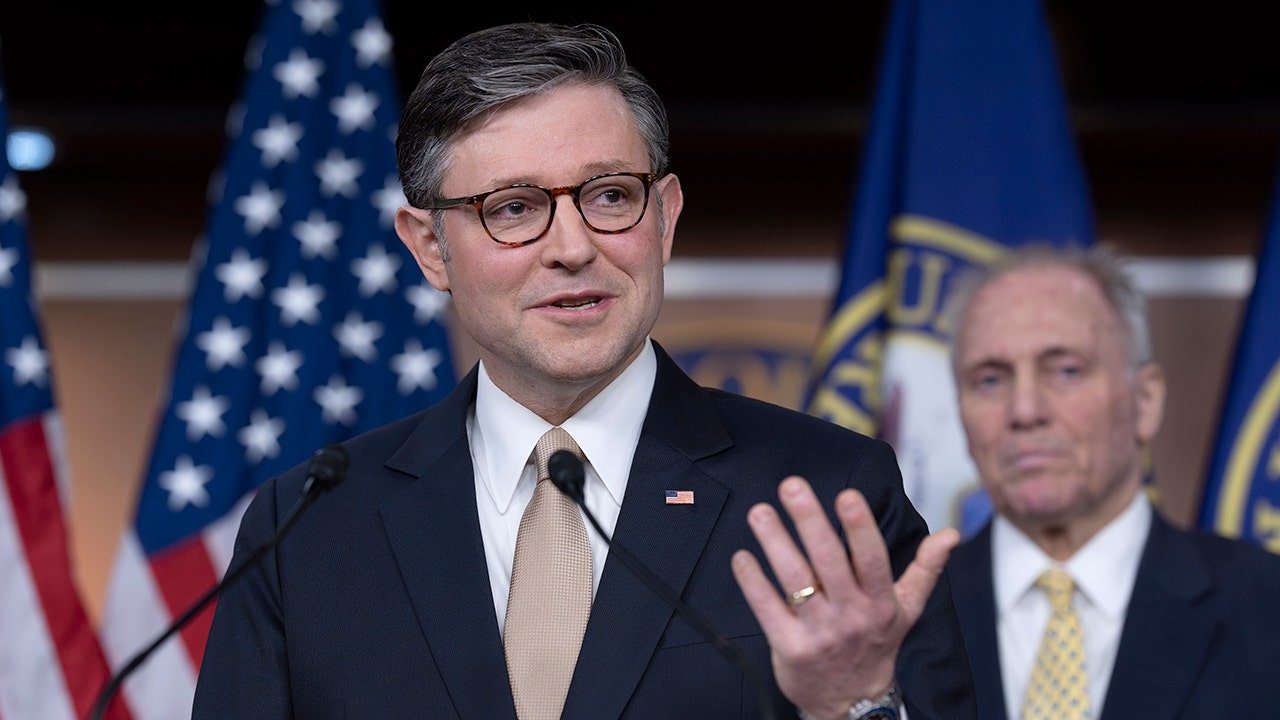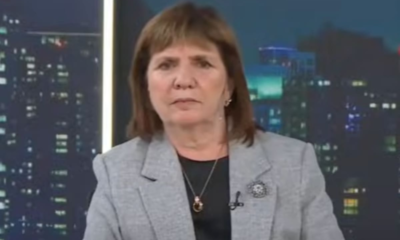INTERNACIONAL
EN VIVO: El Ejército de India denunció nuevos ataques de Pakistán con múltiples drones en la región de Cachemira

Las fuerzas armadas indias detallaron que las aeronaves no tripuladas “fueron detectadas sobrevolando un cantón militar en Amritsar, en el estado de Punyab, y neutralizadas de inmediato por nuestras unidades de defensa aérea”
Pakistán acusó a India de lanzar misiles contra bases militares clave, incluida una ubicada cerca de la capital, Islamabad. En respuesta, el Ejército paquistaní informó el inicio de una ofensiva, denominada como “Operación Bunyanun Marsoos” (“muro inquebrantable”), contra India como represalia por los últimos ataques, en una nueva escalada del conflicto entre ambos países.
La tensión se intensificó tras la masacre de turistas ocurrida el mes pasado en la Cachemira administrada por India, hecho que motivó a Nueva Delhi a lanzar el miércoles la “Operación Sindoor” en zonas de Pakistán y la Cachemira bajo control paquistaní, con el argumento de atacar una supuesta “infraestructura terrorista”.
Desde entonces, ambos gobiernos se acusan mutuamente de intensificar el enfrentamiento, intercambiando drones y misiles, pese a los llamados internacionales a la contención. La región de Cachemira, reclamada en su totalidad por India y Pakistán, ambos países con armamento nuclear, ha sido motivo de tres guerras y continúa siendo un foco permanente de confrontación.
Las últimas actualizaciones del conflicto entre India y Pakistán:
Un alto funcionario indio murió en Cachemira por un bombardeo paquistaní
Un alto funcionario del Gobierno indio, Raj Kumar Thapa, falleció este sábado en un bombardeo atribuido a Pakistán en la ciudad de Rajouri, ubicada en la Cachemira administrada por India.
La información fue confirmada por el ministro principal de Jammu y Cachemira, Omar Abdullah, quien calificó el hecho como una “devastadora pérdida” y rindió homenaje al “oficial dedicado” en una publicación en la red social X.
Según medios oficiales citados por la agencia india PTI, el proyectil de artillería impactó durante la mañana en la residencia del Comisionado Adjunto de Desarrollo del Distrito, provocando su muerte y dejando heridos graves a otros dos funcionarios.
Además, autoridades del gobierno informaron al medio BBC que al menos dos civiles murieron en Jammu por ataques similares. En paralelo, se reportaron explosiones en Srinagar y en el estado de Punjab, a lo largo de la madrugada.
El régimen Chino instó a India y Pakistán a evitar una escalada y que le “den prioridad a la paz”
El régimen de China instó este sábado a India y Pakistán a evitar una escalada del conflicto armado.
“Hacemos un fuerte llamado a India y Pakistán para que den prioridad a la paz y la estabilidad, mantengan la calma y la moderación, retomen la vía de la solución política por medios pacíficos y eviten adoptar acciones que agraven aún más las tensiones“, expresó un portavoz del Ministerio de Asuntos Exteriores de China, según un comunicado oficial.
El ministro de Exteriores de Pakistán declaró que la Operación Bunyanun Marsoos “terminará de alguna manera”

El ministro de Exteriores de Pakistán, Ishaq Dar, afirmó este sábado que la “Operación Bunyanun Marsoos”, lanzada hoy por el Ejército paquistaní, deberá concluir “de alguna manera”, y sugirió que la continuidad del conflicto depende de la respuesta de India.
“Esta operación que iniciamos hoy terminará de alguna manera. Todo depende de lo que la India quiera”, declaró Dar en una entrevista con el medio local Geo.tv. El funcionario insistió en que Pakistán no tuvo otra opción y actuó de forma defensiva, en respuesta a ataques previos atribuidos al Ejército indio.
Dar calificó la ofensiva como una medida “proporcionada y mesurada”, adoptada por la cúpula militar y civil del país.
“La acción que ha tomado la cúpula militar civil de Pakistán es proporcionada. Se pueden tomar muchas más medidas, y estamos preparados para ello”, advirtió, al tiempo que anticipó que la operación “durará un tiempo”, manteniendo abierta la posibilidad de nuevas acciones militares.
Estados Unidos instó a Pakistán a reducir la tensión con India

El Secretario de Estado de Estados Unidos, Marco Rubio, mantuvo este jueves una conversación con el jefe del Ejército de Pakistán, Asim Munir, en la que expresó su preocupación por el aumento de la tensión con India.
“El secretario de Estado, Marco Rubio, conversó hoy con el jefe del Ejército de Pakistán, Asim Munir. Instó a ambas partes a encontrar maneras de reducir la tensión”, señaló en un comunicado la portavoz del Departamento de Estado, Tammy Bruce.
En la misma declaración, Rubio ofreció la asistencia de Estados Unidos para “iniciar conversaciones constructivas y evitar futuros conflictos”.
India denunció nuevos ataques de Pakistán con drones en Cachemira
El Ejército de la India reportó este sábado nuevos ataques por parte de Pakistán en la frontera occidental. Según las autoridades militares, Pakistán intensificó sus acciones con el uso de drones y otras municiones.
“La descarada escalada de Pakistán con ataques con drones y otras municiones continúa a lo largo de nuestra frontera occidental”, comunicó el Ejército indio a través de su cuenta oficial en X.
Además, el Ejército detalló que «múltiples drones enemigos fueron detectados sobrevolando un cantón militar en Amritsar, en el estado de Punyab, fronterizo con Cachemira, y fueron inmediatamente neutralizados por nuestras unidades de defensa aérea“.
El primer ministro de Pakistán convocó reunión de la Autoridad de Comando Nacional

El primer ministro de Pakistán, Shehbaz Sharif, convocó una reunión de la Autoridad de Comando Nacional (NCA, por sus siglas en inglés), el máximo organismo encargado de la política nuclear y de misiles del país. La convocatoria fue informada en un comunicado emitido por el ejército pakistaní.
“La reunión de la Autoridad de Comando Nacional fue convocada por el Primer Ministro”, indica el texto oficial, sin especificar la fecha exacta ni los puntos de agenda.
Este organismo supervisa las decisiones estratégicas relacionadas con el arsenal nuclear y las capacidades de disuasión del país.
Pakistán cerró su espacio aéreo e India restringió las operaciones en 32 aeropuertos
La Autoridad Aeroportuaria de Pakistán suspendió temporalmente todo el tráfico aéreo en el país en la mañana del sábado, luego de una serie de ataques registrados alrededor de las 03:15 (hora local), que según el gobierno pakistaní provinieron de la India y alcanzaron tres bases aéreas. Las autoridades informaron que el cierre del espacio aéreo se extenderá hasta el mediodía.
En paralelo, la Autoridad Aeroportuaria de la India ordenó el cierre de 32 aeropuertos situados en el norte y oeste del país, también como medida preventiva ante el aumento de las tensiones en la región.
El cierre de estas terminales aéreas regirá hasta las 05:29 (hora local) del 15 de mayo, según comunicaron fuentes oficiales.
Los países del G7 llaman a una desescalada inmediata entre India y Pakistán
Los países del G7 llamaron el viernes a una “desescalada inmediata” entre India y Pakistán, al tiempo que pidieron “la máxima moderación” a las dos potencias nucleares, inmersas en su enfrentamiento militar más grave desde hace dos décadas.
“La continuación de la escalada militar supone una seria amenaza para la estabilidad regional”, afirmaron en un comunicado, en el que animaron a los dos países “a entablar un diálogo directo con vistas a encontrar una solución pacífica”.
El ejército de Pakistán inició la “Operación Bunyanun Marsoos” contra la India
El ejército paquistaní dijo que ha iniciado la “Operación Bunyanun Marsoos”, en represalia contra la “agresión india”.
La operación lleva el nombre de un versículo coránico que significa “muro inquebrantable”.
“El lugar de almacenamiento de Brahmos ha sido tomado en el área general Bias”, dijo el ejército el sábado por la mañana hora local, añadiendo que los ataques en varios otros lugares están en curso.
Pakistán también dijo que había alcanzado el campo de aviación de Pathankot y la estación aérea de Udhampur, en India.
El ejército pakistaní declaró que, en represalia, había atacado las bases aéreas indias utilizadas para lanzar misiles contra Pakistán.
El ejército pakistaní declaró que algunos misiles indios atravesaron los sistemas de defensa
En una emisión de la televisión estatal, el teniente general Chaudhry, del ejército paquistaní, declaró que, aunque la mayoría de los misiles indios fueron interceptados por los sistemas de defensa antiaérea, otros lograron pasar.
Además, afirmó que las fuerzas del país están “totalmente preparadas” y calificó los ataques de “cobardes”.
Una de las bases atacadas, según Pakistán, es la de Nur Khan, en Rawalpindi, sede del cuartel general militar del país. Está situada a 10 km de Islamabad, la capital de Pakistán.
Como recordatorio, India no ha hecho comentarios sobre las afirmaciones realizadas esta tarde.
Asia / Pacific,Civil Unrest,JAMMU
INTERNACIONAL
Tailandia advirtió que los enfrentamientos armados con Camboya podrían derivar en una guerra “a gran escala”

Tailandia advirtió este viernes que los enfrentamientos armados con Camboya podrían escalar a una guerra a gran escala, en el segundo día consecutivo de hostilidades que ha dejado al menos 16 muertos y obligado a evacuar a más de 138.000 personas en ambos lados de la frontera.
“Si la situación se agrava podría derivar en una guerra, aunque por ahora sigue limitada a enfrentamientos”, declaró el primer ministro interino tailandés, Phumtham Wechayachai, ante la prensa en Bangkok.
La tensión se disparó el jueves debido a una disputa territorial de décadas entre los dos países del sudeste asiático, con combates que incluyeron el uso de tanques, aviones de combate, artillería y cohetes BM-21.
Se trata de la escalada militar más grave desde 2011 en una zona de 800 kilómetros de frontera, donde persisten áreas no delimitadas oficialmente, salpicadas de templos antiguos.
Según el Ministerio del Interior tailandés, las autoridades evacuaron a 138.000 civiles, incluidos 428 pacientes hospitalarios, desde cuatro provincias limítrofes con Camboya.
El balance oficial en Tailandia ascendió a 15 muertos —un soldado y 14 civiles— y 46 heridos. Por su parte, Camboya reportó un muerto y cinco heridos, en su primer informe oficial desde el inicio del conflicto.

Los enfrentamientos se reanudaron en la madrugada del viernes en tres puntos distintos, de acuerdo con el ejército tailandés. Según su versión, las fuerzas camboyanas lanzaron fuego con armas pesadas, artillería y cohetes múltiples, a lo que las tropas tailandesas respondieron con “fuego de apoyo apropiado”. El ejército agregó que los choques incluyeron seis zonas de combate el jueves, entre ellas dos antiguos templos.
En el municipio camboyano de Samraong, a 20 kilómetros de la frontera, periodistas de la agencia AFP registraron disparos lejanos de artillería durante la mañana. “Vivo muy cerca de la frontera. Tenemos miedo porque empezaron a disparar de nuevo sobre las 6 de la madrugada”, relató Pro Bak, un residente de 41 años que huía con su familia hacia un templo budista. “No sé cuándo podremos volver a casa”, añadió.
La crisis diplomática también se agravó. Tailandia expulsó al embajador camboyano y llamó a consultas a su representante en Phnom Penh, luego de que una mina terrestre hiriera a cinco soldados tailandeses. Camboya respondió retirando a todos sus diplomáticos en Bangkok, excepto uno, y degradando las relaciones al nivel más bajo.
El Consejo de Seguridad de la ONU se reunirá de urgencia y a puerta cerrada este viernes, tras una solicitud del primer ministro camboyano, Hun Manet.

En paralelo, Estados Unidos y Francia instaron al cese inmediato de las hostilidades, mientras que la Unión Europea y China expresaron una profunda preocupación y pidieron diálogo entre las partes.
Desde 2008 hasta 2011, los dos países ya libraron enfrentamientos en la zona, que dejaron 28 muertos y decenas de miles de desplazados. Una decisión de la Corte Internacional de Justicia en favor de Camboya calmó las tensiones durante una década. Sin embargo, la situación volvió a deteriorarse en mayo de este año, tras la muerte de un soldado camboyano en un nuevo choque fronterizo.
Los combates actuales reflejan la fragilidad de la paz en la región y han despertado la preocupación de la Asociación de Naciones del Sudeste Asiático (ASEAN).
El primer ministro de Malasia, Anwar Ibrahim, quien ocupa la presidencia rotativa del bloque, declaró haber hablado con sus homólogos de Camboya y Tailandia, a quienes pidió diálogo inmediato. Según dijo, ambos mostraron “señales positivas y predisposición” a buscar una salida pacífica.
(Con información de AFP)
Asia / Pacific,Defense,Diplomacy / Foreign Policy,SINGAPORE
INTERNACIONAL
Fox News Poll: The GOP is seen as more likely to have a clear plan for the country

NEWYou can now listen to Fox News articles!
With the 2026 midterm elections more than a year away, a new Fox News survey finds that while the Republican Party has lost some ground to the Democratic Party on handling key issues, voters are more likely to think the GOP has a clear plan for dealing with the country’s problems.
The survey, released Thursday, finds that by a 10-point margin, more voters think the Republicans have a clear plan for the U.S. than the Democrats: 43% vs. 33%. Still, majorities feel neither the GOP (54%) or the Democrats (64%) have a plan. This is about where sentiment was three years ago, the last time the question was asked.
FOX NEWS POLL: TRUMP FACING HEADWINDS AT SIX-MONTH MARK
Far more Republicans (79%) than Democrats (51%) are confident their party has a clear plan, and that’s what hurts the Democrats. While at least two-thirds of independents feel neither party has a plan, more trust the GOP (30% vs. 25%).
At the same time, the survey shows some significant erosion in the GOP’s handling of key issues compared to the last time Fox asked in 2023, including in areas where they are traditionally preferred.
Voters view the Republican Party as better able to handle national security (by 14 points), immigration (+6R), and government spending (+5R) while the Democratic Party is favored on climate change (by 23 points), health care (+19D), social security (+17D), education (+15D), and energy policies (+6D).
The parties are rated about equally on inflation (+1D), gun policy (even), the economy (+1R), and foreign policy (+3R).
Compared to 2023, support for the GOP is down on immigration by 4 points, national security by 6, government spending by 6, foreign policy by 9, and the economy by 14. Plus, the Republicans’ 12-point advantage on inflation has disappeared, as Democrats have a 1-point edge today.
While the Democrats have largely maintained support on their best issues, it’s noteworthy they saw a 12-point increase on education, as voters have been split on who would better handle the issue for the last few years.
FOX NEWS POLL: APPROVAL OF SCOTUS AT 5-YEAR HIGH, REBOUNDING FROM RECORD LOW IN 2024
These shifts can mostly be attributed to self-identified Democrats solidifying their preference for their own party’s handling of the issues, as well as independents lessening their support for Republicans or switching to Democrats.
Self-identified Republicans continue to express high levels of support for their party on the issues.
«Independents and even some Democrats had soured on President Biden and the Democratic Congress by 2023 and 2024, but they have shifted to the left a bit in 2025 in response to the policies of President Trump and the Republicans,» says Republican pollster Daron Shaw, who conducts the Fox News survey with Democrat Chris Anderson. «An appreciable part of this is performance related. Without obvious economic and foreign policy victories, independents and soft Democrats could drift to the left, which could scramble the electoral dynamic heading into 2026.»
Overall, views of both major political parties are underwater. By 2 points, the Republican Party has a slightly better favorable rating (44% favorable) than the Democratic Party (42%), but more than half view both parties negatively (56% and 57% unfavorable, respectively). That’s relatively unchanged since April.
Positive views of the Republican Party have shown steady growth since October 2019, while the Democratic Party has been on a downward trajectory, reaching a record low in April (41% favorable).
The Republican Party enjoys more support among their party faithful (83% have a favorable view) than the Democratic Party (78% favorable). Seven in 10 independents have a negative view of both.
CLICK HERE FOR CROSSTABS AND TOPLINE
Conducted July 18-21, 2025, under the direction of Beacon Research (D) and Shaw & Company Research (R), this Fox News survey includes interviews with a sample of 1,000 registered voters randomly selected from a national voter file. Respondents spoke with live interviewers on landlines (114) and cellphones (636) or completed the survey online after receiving a text (250). Results based on the full sample have a margin of sampling error of ±3 percentage points. Sampling error for results among subgroups is higher. In addition to sampling error, question wording and order can influence results. Weights are generally applied to age, race, education, and area variables to ensure the demographics of respondents are representative of the registered voter population. Sources for developing weight targets include the American Community Survey, Fox News Voter Analysis and voter file data.
INTERNACIONAL
«Fake news»: la Casa Blanca trata despegar a Donald Trump del caso Epstein y frenar la tormenta política

La ofensiva contra Barack Obama
Donald Trump,Jeffrey Epstein,Estados Unidos

 ECONOMIA3 días ago
ECONOMIA3 días agoEl consumo en Argentina crece 4% en junio, ante menor inflación y más crédito

 POLITICA1 día ago
POLITICA1 día agoMáximo Kirchner declaró una fortuna de 8.300 millones de pesos: representa un 76% más que el año anterior

 POLITICA2 días ago
POLITICA2 días agoLos organizadores de la Derecha Fest pasaron un video de Villarruel y algunos asistentes gritaron “traidora”




































